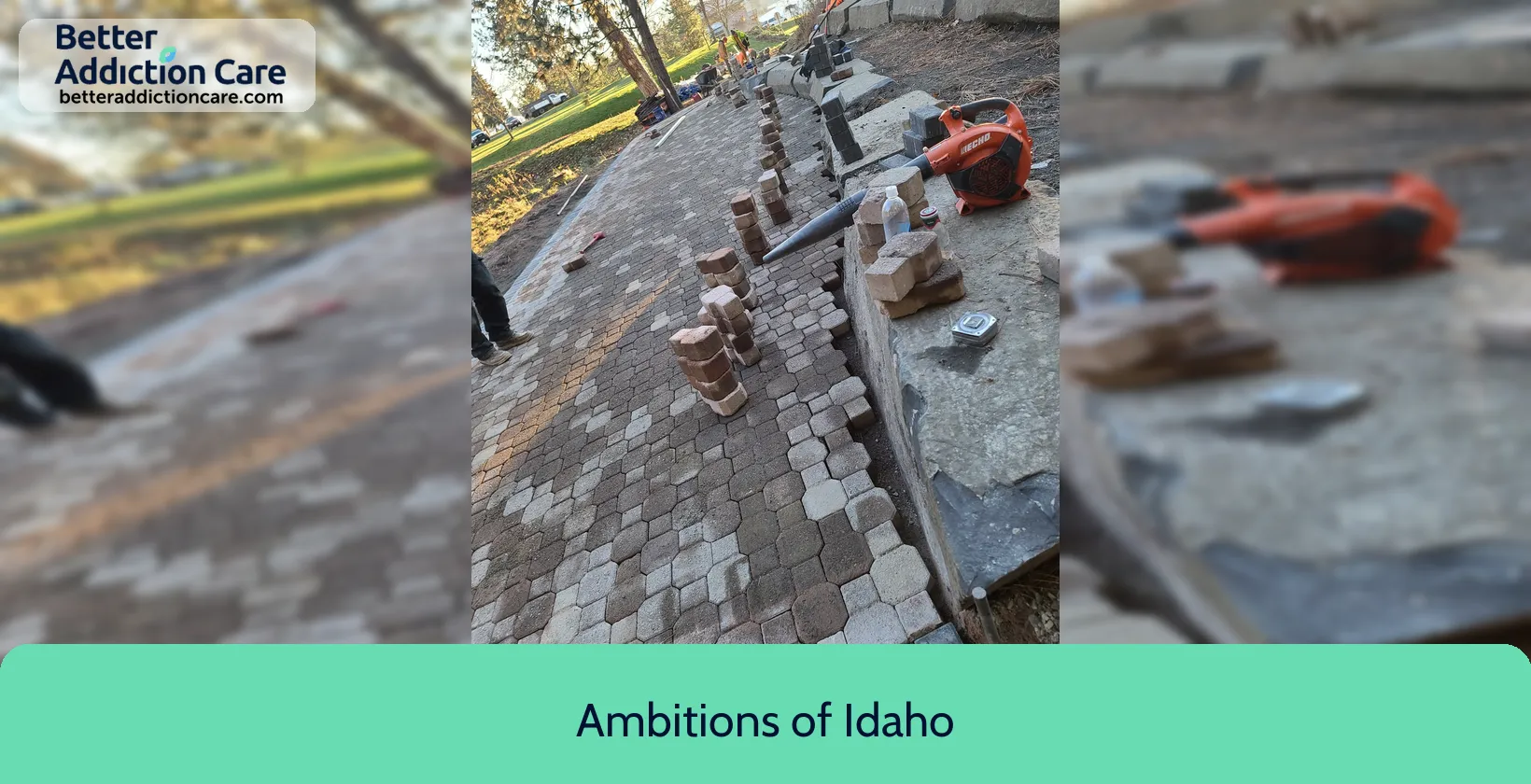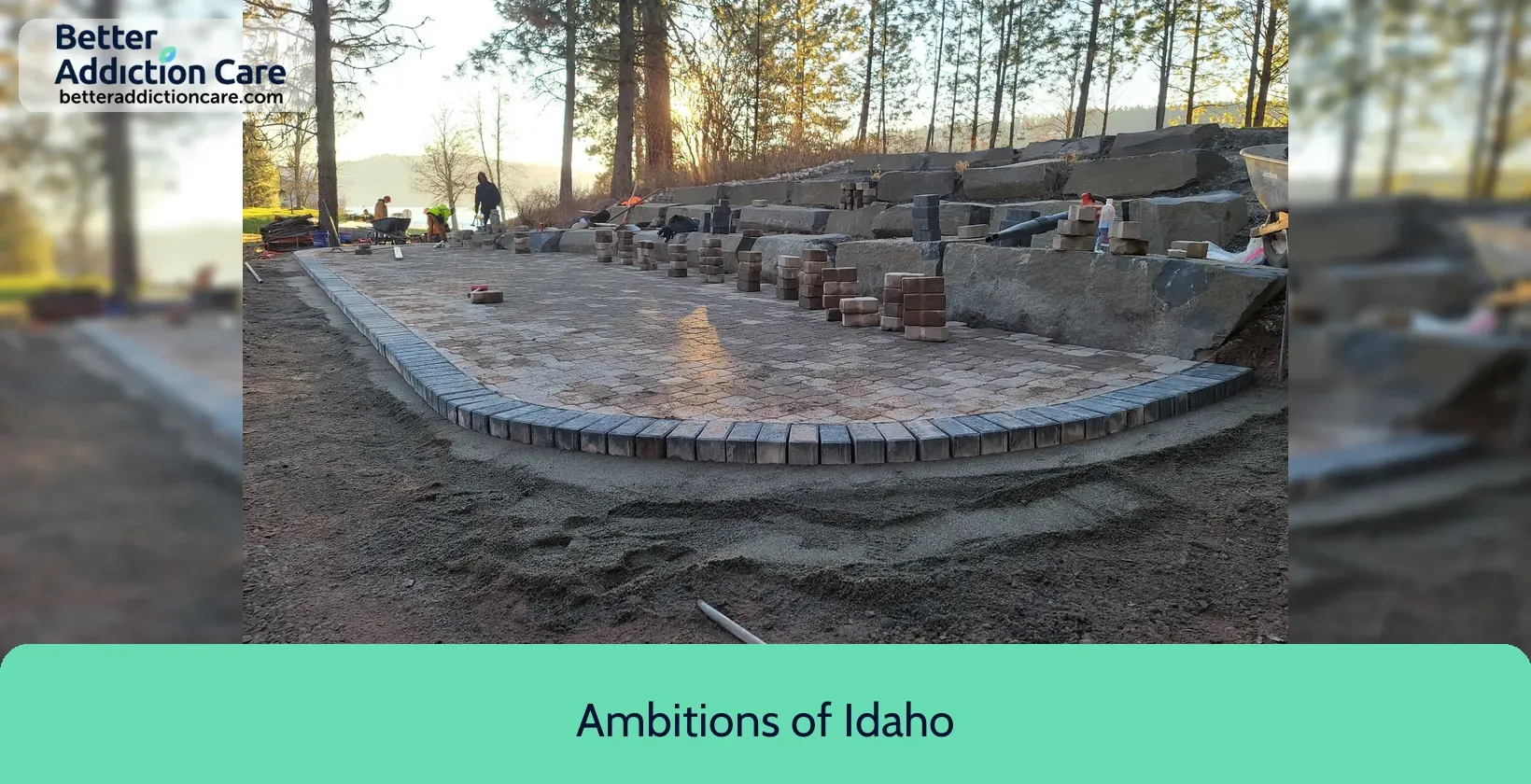Ambitions of Idaho
Overview
Ambitions of Idaho is a substance abuse treatment center for people seeking treatment near Kootenai County. As part of their treatment modalities for recovery, Ambitions of Idaho provides cognitive behavioral therapy, telemedicine/telehealth therapy, and substance use disorder counseling during treatment. Ambitions of Idaho is located in Coeur d'Alene, Idaho, accepting cash or self-payment for treatment.
Ambitions of Idaho at a Glance
Payment Options
- Cash or self-payment
- Medicaid
- Private health insurance
- IHS/Tribal/Urban (ITU) funds
Assessments
- Comprehensive mental health assessment
- Comprehensive substance use assessment
- Interim services for clients
- Outreach to persons in the community
- Screening for mental disorders
Age Groups
- Adolescents
- Young adults
- Seniors
Ancillary Services
- Case management service
- Suicide prevention services
- Specially designed program for DUI/DWI clients
- Child care for client's children
- Mental health services
Highlights About Ambitions of Idaho
6.86/10
With an overall rating of 6.86/10, this facility has following balanced range of services. Alcohol Rehabilitation: 8.00/10, Drug Rehab and Detox: 6.00/10, Insurance and Payments: 6.00/10, Treatment Options: 7.46/10.-
Alcohol Rehabilitation 8.00
-
Treatment Options 7.46
-
Drug Rehab and Detox 6.00
-
Insurance and Payments 6.00
Accreditations
State mental health department:
State mental health department accreditation refers to the process of evaluating and certifying the quality and standards of a state's mental health department, ensuring that it provides high-quality services and meets specific criteria for mental health care. The accreditation process is performed by a third-party organization and helps to improve the overall care and treatment of individuals with mental health conditions.
Treatment At Ambitions of Idaho
Treatment Conditions
- Mental health treatment
- Alcoholism
- Substance use treatment
- Co-occurring Disorders
Care Levels
- Outpatient
- Intensive outpatient treatment
- Regular outpatient treatment
Treatment Modalities
- Cognitive behavioral therapy
- Telemedicine/telehealth therapy
- Substance use disorder counseling
- Trauma-related counseling
- Group counseling
Ancillary Services
Special Programs
- Clients with co-occurring mental and substance use disorders
- Criminal justice (other than DUI/DWI)/Forensic clients
- Clients who have experienced trauma
- Clients who have experienced sexual abuse
- Clients who have experienced intimate partner violence, domestic violence
Get Help Now
Common Questions About Ambitions of Idaho
Contact Information
Other Facilities in Coeur d'Alene

7.62

6.68

6.86

6.62
Browse rehab centers near Coeur d'Alene and in other cities across Idaho
DISCLAIMER: The facility name, logo and brand are the property and registered trademarks of Nimiipuu Behavioral Health, and are being used for identification and informational purposes only. Use of these names, logos and brands shall not imply endorsement. BetterAddictionCare.com is not affiliated with or sponsored by Nimiipuu Behavioral Health.



